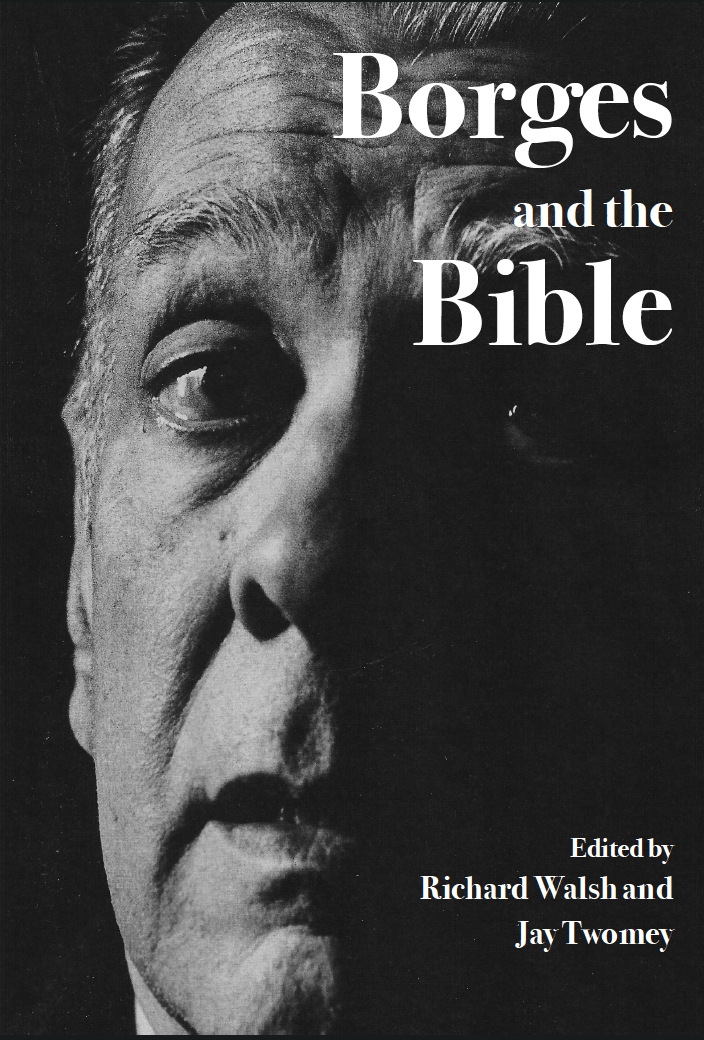Borges and the Bible
£50.00
Borgesian Bibles and scholarship are labyrinths, gardens of forking paths, unsettling and distorting mirrors. With Borges, biblical scholars come face to face with their finitude, obsession, fascination, ambivalence, and inevitable heresy vis-à-vis ta biblia.
Jorge Luis Borges is the darling of authors and critics who were once described as postmodern. Borges’s fictions assail the boundaries between text, world and self. In one sense, the fictions are mere rhetorical games, puzzles, or ‘tricks’, which disrupt communication (and interpretation), but they also suggest —at least to some —metaphysical uncertainties. To read them is as if one read the fictions of Hume or the Buddha.
Most of the literary and biblical scholars in this volume pair the Bible and its scholarship with one or more of Borges’s short fictions (particularly those first collected in English in Ficciones ), but some venture into Borges’s essays, poetry, and his life story (as he and others have told it). As to Bibles, some essayists focus on particular texts from the Hebrew Bible (like Genesis, Samuel, Kings or Job) or the Christian New Testament (like Mark, 2 Corinthians, or Revelation), while others engage traditions of interpretation like Gnosticism, the Kabbalah or academic biblical scholarship. Several focus on canon, translation, the craft of fiction, religion or hermeneutics as a way of thinking about Borges and the Bible.
With Borges, interpretation is ubiquitous. Whether consciously fictionalizing or not, all (biblical) interpretation transforms its precursor. All (biblical) interpretation becomes a play with secrecy and revelation. Borgesian Bibles and scholarship are labyrinths, gardens of forking paths, unsettling and distorting mirrors. With Borges, biblical scholars come face to face with their finitude, obsession, fascination, ambivalence, and inevitable heresy vis-à-vis ta biblia.
Additional information
| table of contents | Introduction: Borgesian Bibles and Scholars Jay Twomey and Richard Walsh Part 1: Borges and the Jewish Bible Borges and the Whale, or, Borges and the Canon of Hebrew Literature Edna Aizenberg Surpassing (the Love of) Women: Homosociality, Homosexuality, and the ‘Sacrifice’ of Women in Borges and the Bible P.J. Sabo The Eldritch Scroll: Fantasies of the Found Book in Borges, Lovecraft, and 2 Kings Rhiannon Graybill Reader, Author, Character: A Confusion of Roles in the Borgesian Book of Job Abigail Pelham The Artifice of Borges’s Narrators Jennifer Rohrer-Walsh Borges and Kabbalistic Infinity: Ein sof and the Holy Book Shlomy Mualem Religious Resonances in Borges’s Fiction Evelyn Fishburn Part 2: Borges and the Christian New Testament Tlön, Uqbar, Orbis tertius and Q: The Psychological and Scholarly Labyrinths of Books Which Don't Exist Robert Seesengood Reading Borges Re-writing Mark’s Gospel in Light of Seeing Arcand Re-viewing Jesus of Nazareth Elizabeth Struthers Malbon Borges and Gnosticism: God Atones for (Having Created) Humanity in Borges’s “Three Versions of Judas” Mac Williams The Garden of Unificating Paths Jay Twomey Adam and Christ: From Garden to Labyrinth Gonzalo Salvador Books to Come: The Book of Sand and the Book of Revelation Hannah Strømmen With Borges in the New Jerusalem Tina Pippin Part 3: Borges and Biblical Afterlives The [Secret of the] Gospel according to Mark Richard Walsh The Book of Desire George Aichele The Egg and the Peacock: Willis Barnstone’s The Restored New Testament and the Idea of a Borgesian Bible Hugh Pyper Borges’s God, Jonathan Meades’s Precursor James Crossley The Afterlife of Borges as a Component in the Afterlife of the Bible Anthony Swindell |
|---|


Michelle Fletcher, Review of Biblical Literature. –
This volume is deep, complex, playful, enigmatic, slippery, and thought – provoking. It is a testament not only to the editors and contributors but to the afterlives of the Bible …
Notably, this union of Borges and the Bible also allows us to reflect on our own craft, in particular the role of the essay within it. The short story was the form of choice for Borges, who, as Swindell points out, avoided the novel. Borges’s stories are expertly crafted, saying much with little and probing deeply with pages not chapters. Reading this volume reminds us that the essay form can do the same, despite it often being subsumed into desires for the “total monograph.” Where else could architecture, Salvador Dali, and the New English Bible cut deeply into totalitarianism? (see Crossley’s funforall), or Lovecraft prophesy biblical fears? (see Graybill’s tour de force) or scatological trails lead us through apocalyptic imaginings? (see Pippin’s paragon). What is more, Seesengood, Twomey, Walsh, and Pyper imbue their essays with dazzling artistry, and to read them is. a joy. All this calls us to reconsider whether the essay could actually be scholarship’s most incisive tool.
To conclude, when reading this volume you may feel yourself sucked into the abyss of uncertainty, but let this wash over you. The ideas in the essays mix and reshuffle. Different combinations and orderings will bring further puzzles and revelations. To read and laugh, be amazed, confused, and stretched by academic output is all too often a readerly desire rather than a reality. Maybe you will fulfill that desire here.